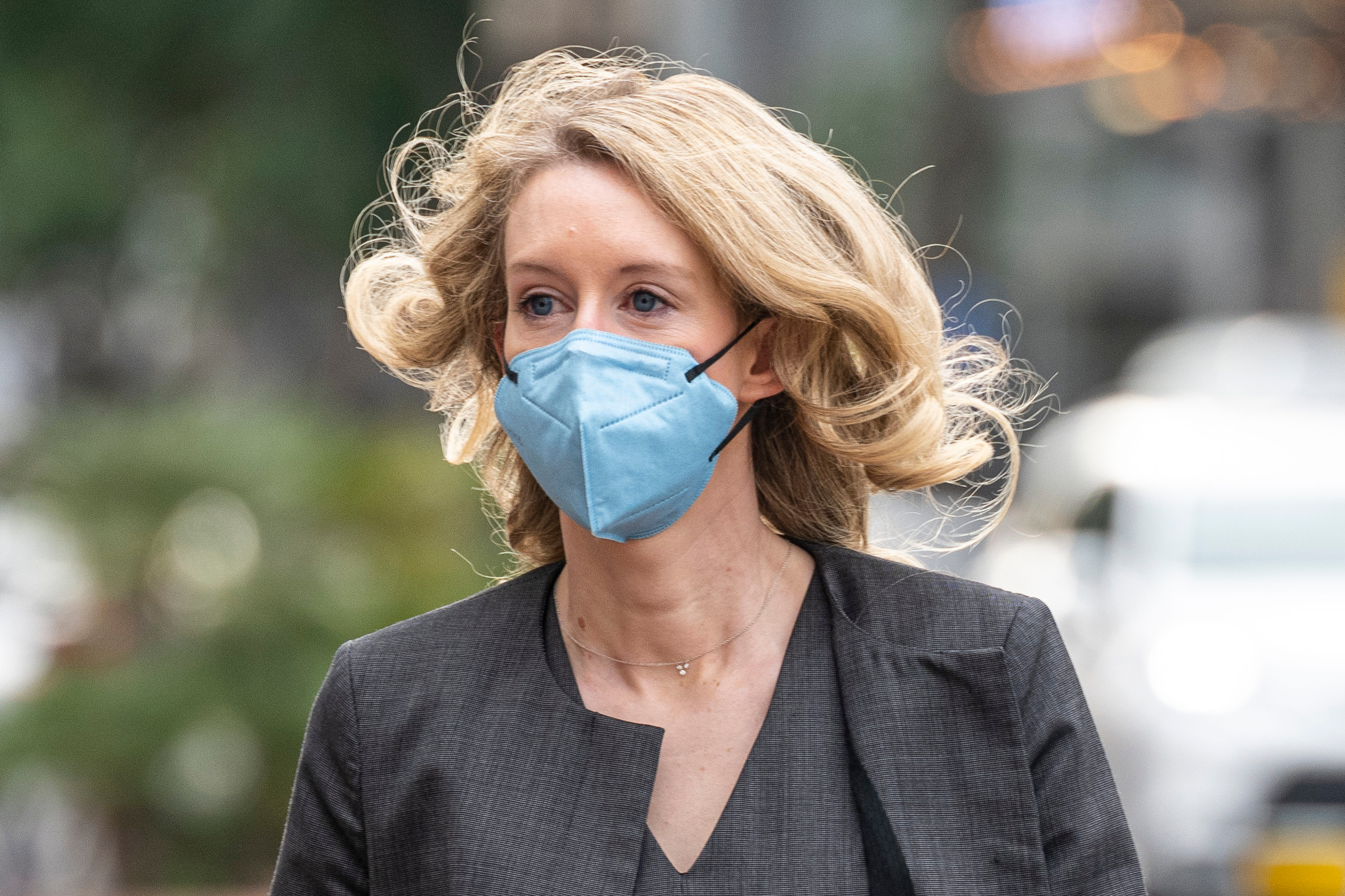Prosecutors seeking 15 years behind bars for Theranos CEO Elizabeth Holmes


A free daily email with the biggest news stories of the day – and the best features from TheWeek.com
You are now subscribed
Your newsletter sign-up was successful
Federal prosecutors are recommending a sentence of 15 years in prison for disgraced Theranos founder Elizabeth Holmes, Reuters reported Friday.
Holmes, 38, was found guilty this past January of defrauding investors about the merits of Theranos' blood-testing machines. She is facing a maximum of 20 years in prison, though experts predicted her actual sentence would likely be shorter.
In addition to the recommended sentence, U.S. attorneys said Holmes should be forced to pay $800 million in restitution to investors, per Reuters.
The Week
Escape your echo chamber. Get the facts behind the news, plus analysis from multiple perspectives.

Sign up for The Week's Free Newsletters
From our morning news briefing to a weekly Good News Newsletter, get the best of The Week delivered directly to your inbox.
From our morning news briefing to a weekly Good News Newsletter, get the best of The Week delivered directly to your inbox.
Holmes is scheduled to be sentenced next week, and her time in prison will be the final domino to fall in one of the largest investment fraud schemes in American history, as well as one of the most notable falls from grace in tech history. Forbes had at one point named Holmes the youngest self-made female billionaire in the country, and Theranos had an estimated valuation of $9 billion.
However, an investigation by The Wall Street Journal soon revealed that Holmes and other top officials at Theranos had lied to investors about the accuracy and capabilities of their blood-testing machines. As the investigation grew to involve the federal government, Theranos' value soon plunged to zero, and the SEC soon charged Holmes with "massive fraud" related to her running of the company.
According to reports from The Associated Press and Bloomberg, Holmes is seeking an 18-month house arrest sentence in lieu of prison time. However, it was noted that, given the scope of her crimes, this request was unlikely to be granted.
A free daily email with the biggest news stories of the day – and the best features from TheWeek.com
Justin Klawans has worked as a staff writer at The Week since 2022. He began his career covering local news before joining Newsweek as a breaking news reporter, where he wrote about politics, national and global affairs, business, crime, sports, film, television and other news. Justin has also freelanced for outlets including Collider and United Press International.
-
 What to know before filing your own taxes for the first time
What to know before filing your own taxes for the first timethe explainer Tackle this financial milestone with confidence
-
 The biggest box office flops of the 21st century
The biggest box office flops of the 21st centuryin depth Unnecessary remakes and turgid, expensive CGI-fests highlight this list of these most notorious box-office losers
-
 The 10 most infamous abductions in modern history
The 10 most infamous abductions in modern historyin depth The taking of Savannah Guthrie’s mother, Nancy, is the latest in a long string of high-profile kidnappings
-
 Scientists are worried about amoebas
Scientists are worried about amoebasUnder the radar Small and very mighty
-
 Metal-based compounds may be the future of antibiotics
Metal-based compounds may be the future of antibioticsUnder the radar Robots can help develop them
-
 A Nipah virus outbreak in India has brought back Covid-era surveillance
A Nipah virus outbreak in India has brought back Covid-era surveillanceUnder the radar The disease can spread through animals and humans
-
 Trump HHS slashes advised child vaccinations
Trump HHS slashes advised child vaccinationsSpeed Read In a widely condemned move, the CDC will now recommend that children get vaccinated against 11 communicable diseases, not 17
-
 Deaths of children under 5 have gone up for the first time this century
Deaths of children under 5 have gone up for the first time this centuryUnder the radar Poor funding is the culprit
-
 A fentanyl vaccine may be on the horizon
A fentanyl vaccine may be on the horizonUnder the radar Taking a serious jab at the opioid epidemic
-
 Health: Will Kennedy dismantle U.S. immunization policy?
Health: Will Kennedy dismantle U.S. immunization policy?Feature ‘America’s vaccine playbook is being rewritten by people who don’t believe in them’
-
 More adults are dying before the age of 65
More adults are dying before the age of 65Under the radar The phenomenon is more pronounced in Black and low-income populations
